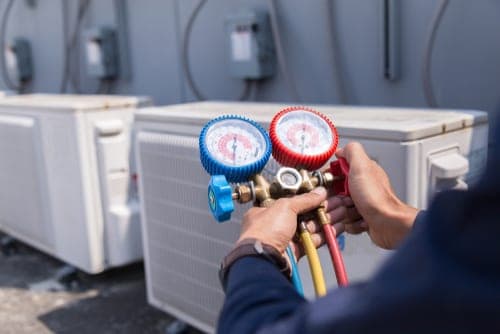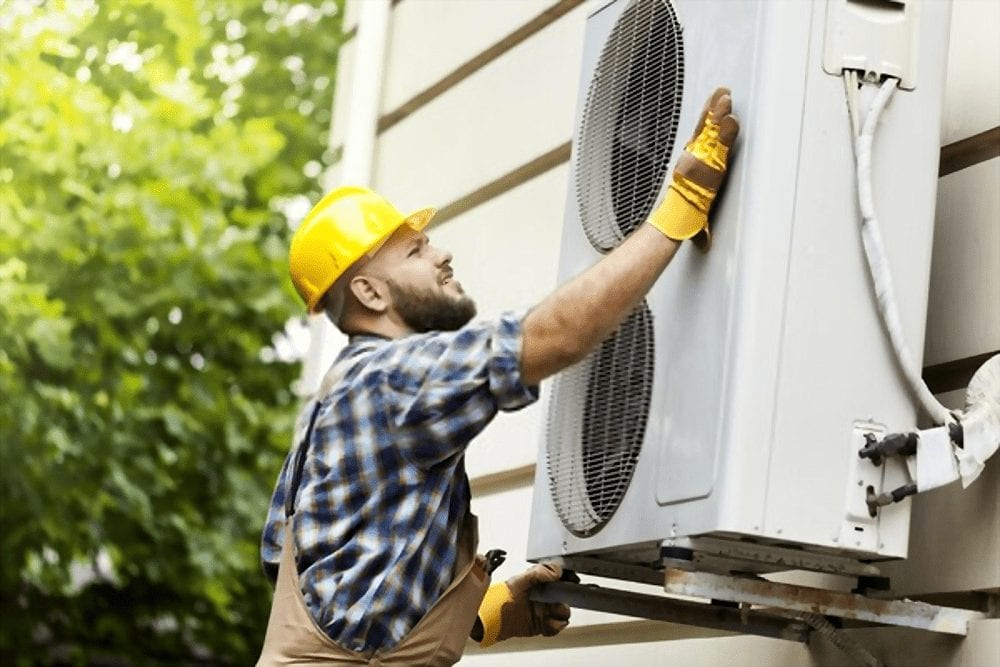The Value of Cooling And Heating Installation: Trick Factors To Consider for a Comfortable Indoor Environment
The installment of an A/c system is an important component in achieving an energy-efficient and comfy indoor atmosphere. Elements such as the viability of the system for specific structure needs, proper sizing to prevent inefficiencies, and the experience of contractors for a quality setup play crucial duties. The adoption of innovative innovations can substantially improve system efficiency.
Choosing the Right System

When choosing a heating and cooling system, it is vital to examine the capability needed to properly warm or cool the area without straining the system, which can cause enhanced wear and functional prices. Consulting with an expert cooling and heating contractor can give valuable understandings right into picking a system that lines up with both the building style and the expected use patterns of the building.
Additionally, considering the assimilation of clever modern technology can improve system administration and monitoring, offering better control and possible expense savings. By meticulously assessing these factors, one can make certain the choice of a cooling and heating system that not just meets prompt demands however also adds to long-term operational sustainability and resident comfort.
Recognizing Power Efficiency
Comprehending power efficiency is vital when considering an A/c installation, as it directly affects both the ecological impact and the operational costs of the system. The effectiveness of a Cooling and heating system is typically suggested by scores such as SEER (Seasonal Power Performance Proportion) for air conditioners or AFUE (Annual Fuel Usage Effectiveness) for heating systems.

Buying an energy-efficient a/c system not only translates to set you back financial savings but also adds positively to environmental preservation by decreasing greenhouse gas discharges. Additionally, several territories provide motivations or discounts for the setup of high-efficiency systems, further improving their financial allure.
When assessing power performance, take into consideration innovative functions such as variable rate electric motors, wise thermostats, and zoning capabilities. These advancements boost the system's capability to adapt to differing need, thereby enhancing power use. It is essential to seek advice from with a/c professionals who can give insights right into the very best alternatives tailored to certain environment conditions and use patterns, ensuring optimal performance and comfort.
Value of Proper Sizing

On the have a peek here other hand, a small a/c system will struggle to get to the preferred temperature, specifically throughout extreme climate condition. This can result in continual operation, leading to greater energy prices and prospective getting too hot of system components. In addition, insufficient sizing can lead to irregular temperature circulation, triggering particular areas of a structure to be too great or too cozy.
To achieve the proper sizing, a detailed tons estimation is necessary. This involves examining various aspects such as the building's square video footage, insulation degrees, window kinds, and local climate problems. By properly establishing the home heating and cooling down needs of a room, HVAC experts can advise systems that ensure effective procedure, decreased power intake, and improved interior comfort.

Guaranteeing High Quality Setup
A smooth cooling and heating installation is the cornerstone of a system's long life and performance. Guaranteeing high quality setup involves precise attention to information, adherence to market requirements, and utilizing competent professionals. The procedure starts with choosing a skilled and licensed cooling and heating specialist. This expert should have comprehensive expertise of diverse systems and be proficient at examining the details demands of the building.
Appropriate installation exceeds simple placement of devices. It involves exact calibration to guarantee optimum air flow, efficient power consumption, and consistent temperature level distribution. This consists of accurate ductwork installment, guaranteeing links are secure and leak-free, which is vital for preserving system efficiency and interior air quality.
Moreover, the implementation of sophisticated diagnostic devices during installment can spot potential problems early, protecting against pricey repairs and extending the life expectancy of the system. The service provider ought to additionally ensure that all elements are suitable which the system adheres to local structure codes and guidelines.
Normal Upkeep Practices
When the structure for a high-performing cooling and heating system is developed via top quality installment, the emphasis needs to change to normal upkeep techniques to make certain ongoing efficiency and dependability. Routine maintenance not only extends the lifespan of the system but additionally boosts site link interior air high quality, minimizes energy consumption, and avoids costly repairs. Vital maintenance tasks consist of regularly transforming air filters, cleansing evaporator and condenser coils, and checking the system for leakages or clogs.
Air filters should be changed or cleaned up every one to three months, relying on use and environmental factors. This basic task can substantially improve air flow and system performance (air conditioning installation Brownwood TX). Cleaning up the evaporator and condenser coils prevents dust build-up, which can hinder warm absorption and cooling capacity. In addition, professional service technicians must inspect the system every year, examining for cooling agent degrees, electrical connections, and general system performance.
Attention to ductwork is likewise vital; securing and cleaning up air ducts frequently protects against air loss and contamination. Applying an upkeep schedule makes sure that small issues are addressed before they rise, safeguarding the system's functional stability. By sticking to these upkeep techniques, home owners can maximize their cooling and heating system's capability and preserve a comfortable indoor atmosphere year-round.
Final Thought
By picking a suitable system tailored to certain structure demands, understanding power effectiveness, and guaranteeing proper sizing, inefficiencies can be lessened. The participation of proficient professionals warranties high quality installment, while the integration of sophisticated technologies boosts system efficiency and monitoring.
Numerous types of A/c systems are available, including split systems, crossbreed systems, duct-free systems, and packaged home heating and air systems, each with distinct benefits and limitations.
Comprehending power performance is vital when taking into consideration a HVAC setup, as it straight impacts both the environmental impact and the operational costs of the system. The effectiveness of an A/c system is usually shown by ratings such as SEER (Seasonal Energy Performance Proportion) for air conditioners or AFUE (Annual Gas Application Efficiency) for heating systems (air conditioning installation Brownwood TX).Once the foundation for a high-performing HVAC system is established through quality installation, the focus ought to move to normal upkeep techniques to make certain ongoing effectiveness and dependability. Furthermore, specialist service technicians should inspect the system annually, checking for refrigerant levels, electrical connections, and general system performance